 Your new post is loading...
 Your new post is loading...
The internet increasingly pervades our lives, delivering information to us no matter where we are. It takes a complex system of cables, servers, towers, and other infrastructure, developed over decades, to allow us to stay in touch with our friends and family so effortlessly. Here are 40 maps that will help you better understand the internet — where it came from, how it works, and how it's used by people around the world.
Via Lauren Moss
A showcase of the best infographics from around the web (Internet Users By Region – How Much Of The World Is Online? A look at the current statistics of worldwide internet usage.
Via Lauren Moss
In 1934, six decades before the birth of the web, a Belgian bibliophile described his vision for té lé photographie, an electronic telescope which could transmit any document in the world to a television screen. Paul Otlet loved libraries. In 1895 he met a kindred spirit, fellow Belgian and future Nobel Prize winner, Henri La Fontaine. Together they conceived The Mundaneum, a comprehensive collection of the world’s published knowledge, equal in ambition to the great Library of Alexandria.
By 1910 they had collected thousands of books, newspapers, photographs, journals, posters and postcards. Otlet called the collection the ré seau, a network of documents connected by links. More than blind signposts, these links described the relationships between documents, an implementation of what we now call the semantic web. As the Mundaneum grew, this degree of annotation became unmanageable. ...
Via Jacques Urbanska, Ne10, Carol Ann BRAUN
Le groupe a breveté un moyen de vérifier automatiquement le contenu des mails pour éviter les "phrases problématiques": une entrave à la liberté d'expression.
Via Jean-Pierre Blanger
Des géants du Net défiscalisés, des sites censurés par Free, un gouvernement passif, des « inspecteurs » Collin et Colin dépêchés pour inventer de nouveaux impôts… les dernières semaines ont été rudes pour les entreprises françaises qui ont réussi dans l'Internet. Car il y en a, et les mettre en joue en croyant que l'exécution de nos réussites nationales va faire plier les géants américains du secteur est une drôle d'idée.
Via Aurélien BADET
The Ubi is an always-on voice-activated computer ready to help. Just plug it in, talk to it and it’ll help you connect with your world. Ubi uses voice recognition technology to listen for plain language commands, responding to requests in a synthesized voice or offering simple status updates using the multi-colored LED indicator lights.
It’s been designed to synchronize with other Ubis in the home or office, and users should be able to move from room to room and interact with devices in different locations as though they were one unit…
°°°°°°°°°°°°°
Ubi/The Ubiquitous Computer : http://theubi.com
|
Après annonce de la supériorité morale du moteur de recherche Sputnik.ru, en phase test, les blogueurs russes ont posté des captures d'écran de résultats inattendus. Projet financé par l’État, Sputnik.ru vient de rentrer en phase de test bêta et semble donner des résultats assez étonnants. Ce tout nouveau moteur de recherche, réponse du Kremlin à l’étranger Google et à l’indépendant Yandex, réalise enfin l’ambition du gouvernement russe de contrôler l’utilisation d’Internet. ...
Via Alcofribas, René Z.
Gilles Boutin | François-Bernard Huyghe : "Selon une étude publiée dans le magazine The Nation, il est possible à un moteur de recherches d'influencer l'opinion d'un groupe de personnes en favorisant certaines informations plutôt que d'autres à chaque fois qu'une recherche est effectuée. Il suffirait pour cela de modifier les algorithmes du système. Que ce soit le fait de l'entreprise ou de pirates informatiques, cela est-il techniquement faisable ? Quelles dimensions le procédé pourrait-il prendre ?.. °°°°°°°°°°°°° François-Bernard Huyghe/Biographie : http://bit.ly/144k5qt
Via Serge Meunier
In 1934, six decades before the birth of the web, a Belgian bibliophile described his vision for té lé photographie, an electronic telescope which could transmit any document in the world to a television screen. Paul Otlet loved libraries. In 1895 he met a kindred spirit, fellow Belgian and future Nobel Prize winner, Henri La Fontaine. Together they conceived The Mundaneum, a comprehensive collection of the world’s published knowledge, equal in ambition to the great Library of Alexandria.
By 1910 they had collected thousands of books, newspapers, photographs, journals, posters and postcards. Otlet called the collection the ré seau, a network of documents connected by links. More than blind signposts, these links described the relationships between documents, an implementation of what we now call the semantic web. As the Mundaneum grew, this degree of annotation became unmanageable. ...
Via Jacques Urbanska, Ne10, Carol Ann BRAUN
People ask what the next web will be like, but there won’t be a next web. The space-based web we currently have will gradually be replaced by a time-based worldstream. It’s already happening, and it all began with the lifestream, a phenomenon that I (with Eric Freeman) predicted in the 1990s and shared in the pages of Wired almost exactly 16 years ago. This lifestream — a heterogeneous, content-searchable, real-time messaging stream — arrived in the form of blog posts and RSS feeds, Twitter and other chatstreams, and Facebook walls and timelines. Its structure represented a shift beyond the “flatland known as the desktop” (where our interfaces ignored the temporal dimension) towards streams, which flow and can therefore serve as a concrete representation of time.
Via Simone Favaro
With the rampant usage of the internet these days, most people get information using it for it is the easiest way to acquire one. Infographics, visual representations of information, data or knowledge are an important tool in teaching, in business, in giving inspiration and in presenting information. It is one of the most strongest ways to communicate with complex data. However, the effectiveness of an infographics greatly relies on how it is designed. Hence, to aid designers, here is a list of what not to do to create a successful infographic or visualization...
Via Lauren Moss
No one can remember everything, and the Web can be a great mind-expanding device.
Via Sakis Koukouvis
|



 Your new post is loading...
Your new post is loading...

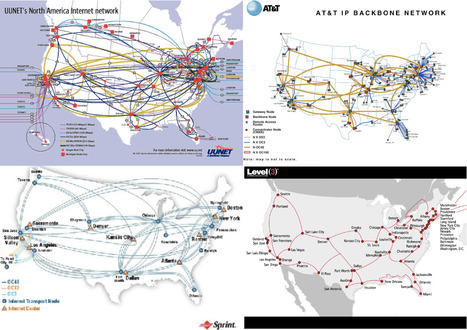

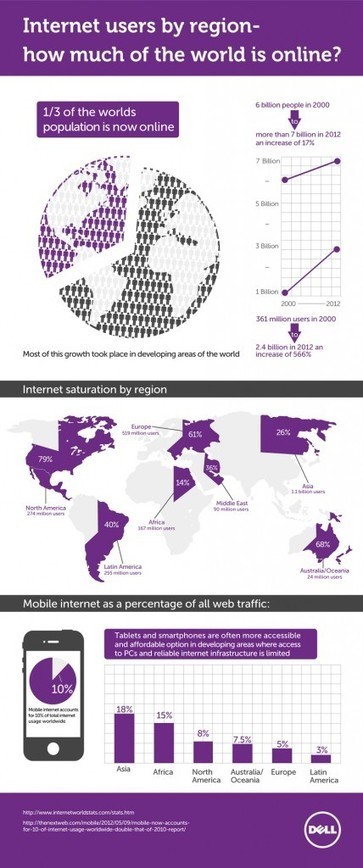

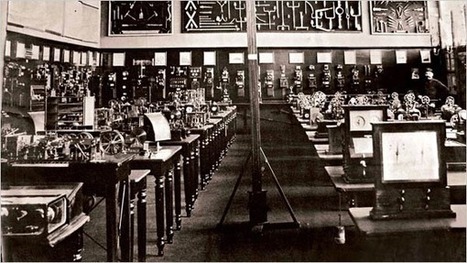




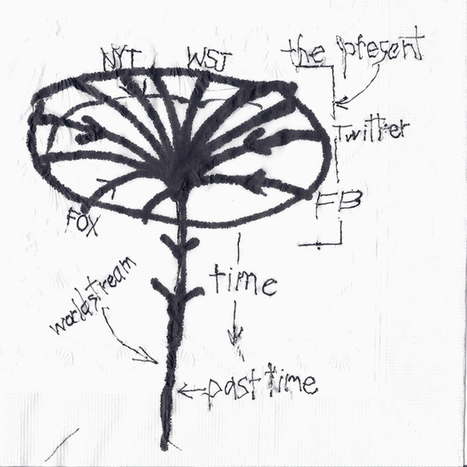

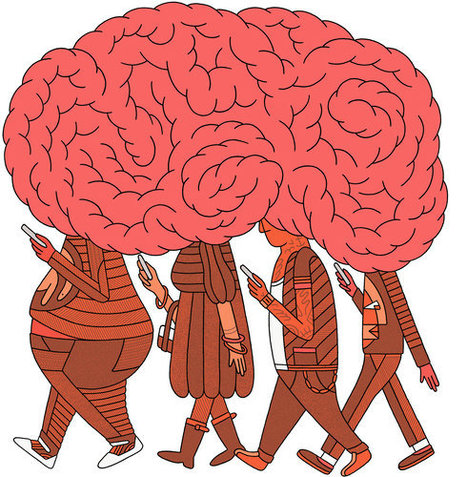





This informative site sheds light on the pervasive workings of the Internet.
A really excellent visual resource for understanding how the Internet has and continues to evolve.
Cette série de cartes accompagnées de commentaires en anglais est absolument remarquable car elle permet de comprendre comment internet s'est imposé à travers le monde.